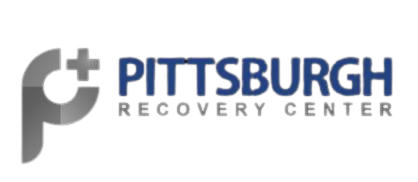In the journey toward recovery, finding the proper support and treatment options is critical. For those in Pennsylvania dealing with substance abuse or mental health issues, understanding your coverage through Geisinger can open doors to effective treatment. Geisinger Covered Rehab in Pittsburgh offers hope, providing comprehensive care tailored to overcome drug addiction and reinforce mental wellness. With a focus on accessible and quality treatment, exploring how these services can foster lasting recovery and a return to a healthier lifestyle is vital.
Here, we will guide you through the different rehab options covered by Geisinger in Pittsburgh, focusing on both inpatient and outpatient treatment at Pittsburgh Recovery Center. You’ll learn about the distinguishing features of each treatment plan, helping you decide which path might be the best fit for your needs. Whether facing challenges related to substance abuse or striving for improved mental health, understanding the available support is the first step toward healing. As you navigate the complexities of drug rehab and recovery, this overview will serve as a roadmap to finding the proper care within Pennsylvania’s network of support.

If you’re covered under a Geisinger Health Plan, you will find relief knowing that both drug and alcohol rehab, as well as substance abuse treatment and mental health services, are typically included. However, it’s essential to understand that the extent of coverage can vary based on your specific plan and the state you reside in. Most treatment types, including inpatient and outpatient, require preauthorization. This process determines if the service is medically necessary, though it’s not a definitive guarantee of coverage. You’ll likely encounter out-of-pocket expenses such as co-pays, deductibles, or co-insurance.
Geisinger supports a broad spectrum of treatment options to combat major addictions, which are commonly treated at most rehab facilities. For severe cases, medical detoxification might be necessary to manage withdrawal symptoms safely and comfortably. The treatments available range from intensive inpatient programs, where you reside at the facility, to less intensive outpatient programs that allow you to maintain daily responsibilities.
Inpatient programs provide robust support, including medical and psychiatric care and various therapeutic activities designed to equip you with skills for a drug-free life. Outpatient programs, while less intensive, support your recovery with regular counseling sessions focusing on stress management and behavioral changes to aid sobriety. Additionally, Partial Hospitalization Programs (PHPs) and Intensive Outpatient Programs (IOPs) offer structured treatment during the day, allowing you to return home at night. These programs are often steps down from inpatient care or can be direct treatments depending on the severity of your addiction.
Understanding these options and how they align with your Geisinger coverage can significantly influence your journey toward recovery.

Partial hospitalization is our highest level of care. Partial Hospitalization is a structured Substance Abuse treatment program that runs for 5 days a week 4-6 hours a day.

In IOP, you attend therapy, learn to maintain sobriety, and develop a supportive peer network to begin transitioning into a lifelong recovery program. IOP is 3-5 days a week, 3 hours a day.

Outpatient therapy is an ideal option for people who are motivated to maintain abstinence. Outpatient is 1-2 days a week, 2-3 hours a day.
Pittsburgh Recovery Center’s inpatient treatment program is designed to provide you with a structured environment conducive to recovery. You’ll benefit from a comprehensive approach that includes individualized treatment plans incorporating evidence-based practices such as Cognitive-Behavioral Therapy (CBT), Twelve-step Facilitation (TSF), and medications tailored for Substance Use Disorder. The facility offers a safe, secure, and comfortable setting where you can focus entirely on your recovery journey, surrounded by professionals and peers who understand your challenges.
Choosing inpatient care at Pittsburgh Recovery Center means you’re opting for a setting that significantly enhances your chances of long-term sobriety. One of the primary advantages is the constant access to medical and psychological support, especially during the critical detoxification phase. This level of care helps manage withdrawal symptoms safely and reduces the risk of relapse. Moreover, staying in a drug-free environment away from daily stressors allows you to fully engage in your recovery without the temptations present in your everyday surroundings. The structured schedule and round-the-clock support foster significant behavioral changes and personal growth, which is crucial for overcoming addiction.
The effectiveness of the inpatient program at Pittsburgh Recovery Center is reflected in numerous success stories shared by former patients. These testimonials highlight the quality of care received and the compassionate support extended to their families. Many alumni credit the center for saving their lives and relationships, and they continue to participate in the center’s vibrant alumni community. Engaging in ongoing alumni events helps maintain the connection to the recovery community, which is vital for sustained recovery. These stories serve as a powerful testament to the transformative impact of the inpatient program, providing hope and encouragement to those embarking on their recovery journey.
At Pittsburgh Recovery Center, outpatient treatment allows you to receive therapy while maintaining your daily responsibilities. This treatment is ideal if you have mild to moderate addiction issues and a stable support system at home. With outpatient services, you can attend therapy sessions for a few hours a day, typically 1-2 days a week, allowing you to continue working, studying, or caring for your family. The program offers a variety of treatment options, including individual counseling, group therapy, and medication management, all tailored to support your long-term recovery.
Unlike inpatient treatment, where you reside at the facility, outpatient care allows you to return home after each session. This setup is less intensive but provides significant support for your recovery journey. Outpatient treatment at Pittsburgh Recovery Center includes a range of therapeutic modalities, such as cognitive-behavioral therapy, dialectical behavior therapy, and motivational interviewing, similar to those offered in inpatient settings. However, the flexibility of outpatient care is crucial for your ability to manage life’s daily demands while still focusing on recovery.
Enrolling in the outpatient program at Pittsburgh Recovery Center involves a straightforward process. Initially, you will undergo a comprehensive assessment to determine the most effective treatment plan based on your needs. To enroll, you can contact the center directly to schedule an appointment. During this initial consultation, the team will discuss your treatment options, outline the expected schedule, and explain any necessary steps to begin your journey toward recovery. This personalized approach ensures that you receive the care best suited to your situation, making engaging in the program and achieving successful outcomes easier.
When you reach out to the Pittsburgh Recovery Center, the first step is an initial consultation and assessment. During this process, you’ll discuss your medical history, substance use, mental health concerns, and any other relevant information. This comprehensive assessment is crucial as it helps the admissions team understand your situation better and determine the most suitable level of care for you.
A personalized treatment plan is crafted following your assessment, explicitly tailored to meet your unique needs. This plan will outline the recommended duration of your treatment, which could range from 1 week to 90 days, depending on factors such as your condition and insurance coverage. It includes various therapies and interventions that are deemed most effective for your situation, ensuring that the treatment addresses all aspects of your addiction and any co-occurring mental health issues.
Understanding the cost of rehab and navigating insurance coverage can be daunting. Geisinger insurance typically covers a portion of the treatment, but you should verify the extent of coverage with your provider since plans can vary. The admissions team at Pittsburgh Recovery Center can assist you in maximizing your benefits. Additionally, other avenues exist to explore if insurance does not cover all costs. The center may offer scholarships, or you might consider private payment options and flexible payment plans that accommodate your financial situation.
Exploring Geisinger-covered rehab options at Pittsburgh Recovery Center highlights the importance of accessible, quality treatment tailored to individual needs. The comprehensive overview of inpatient and outpatient treatment options demonstrates a dedicated approach to fostering lasting recovery and mental wellness. Critical insights into selecting the right treatment plan, ranging from the initial consultation and assessment to the financial considerations, underline the center’s commitment to providing a supportive pathway to rehabilitation.
The significance of choosing the proper care, whether the immersive inpatient program or the flexible outpatient treatment, must be addressed. The testimonials of those who have walked the path to recovery with Pittsburgh Recovery Center provide hope for many struggling with similar issues. This overview offers direction and solace in knowing that comprehensive support systems that cater to various needs are available. Pittsburgh Recovery Center aims to pave the way for more successful recovery stories, shaping a healthier, drug-free community.
We are an in-network provider for Highmark, Blue Cross Blue Shield of Pennslyvania, UPMC, and Geisinger. We accept most PPO & POS insurance plans.










At Pittsburgh Recovery Center, your journey to recovery is supported by a wide range of Aetna insurance plans. Whether you have a standard policy or one linked to the Affordable Care Act, you can access essential services for substance abuse and behavioral health issues. Aetna plans typically cover services like Medical Detox, Residential Rehab, Outpatient Programs, and more, ensuring comprehensive care that addresses both substance use and co-occurring mental health conditions. It’s important to recognize that the specifics of coverage can vary significantly depending on your plan and the state it is issued in.
To ensure that you can fully utilize your Aetna coverage at Pittsburgh Recovery Center, it’s crucial to verify your benefits. Start by contacting Aetna directly or allow our admissions team to assist you during your initial assessment. Our experienced staff will guide you through the process of confirming the specifics of your coverage, including the extent to which your treatment costs are covered, whether in full or partially. This verification step is vital to avoid unexpected expenses and to streamline your admission into the appropriate treatment program.
Understanding the financial aspects of your treatment plan is essential. If you hold an Aetna policy, you may be eligible to receive treatment at little to no additional cost. However, it’s important to know the details of your specific plan as coverage can vary. For instance, some plans may cover the full cost of treatment while others might only cover a percentage. At Pittsburgh Recovery Center, we strive to be transparent about how you can maximize your insurance benefits. In cases where your Aetna insurance does not cover the full cost of care, we are prepared to work with you to create a feasible payment plan, ensuring that financial barriers do not hinder your path to recovery.
By understanding the types of Aetna plans accepted, verifying your coverage, and considering all financial aspects, you can better navigate the complexities of insurance and focus on your recovery with peace of mind.
Pittsburgh Recovery Center is an institution that stands at the forefront of battling addiction in Pittsburgh. By prioritizing customized treatment plans, drawing upon a blend of evidence-based and holistic practices, and fostering a compassionate environment, the center paves the way for individuals to embark on a path toward healing and long-term recovery. It’s clear that the facility’s dedication to understanding the personal battles each individual faces against addiction, coupled with the accessibility of Aetna insurance coverage, makes it an optimal choice for those seeking to reclaim their lives from the clutches of substance abuse.
Choosing Pittsburgh Recovery Center not only means receiving personalized care from a highly qualified team but also benefiting from a holistic approach that nurtures the body, mind, and spirit. With the backing of Aetna insurance, the path to recovery becomes more accessible, allowing individuals to focus on their healing journey without the added stress of financial burdens.
